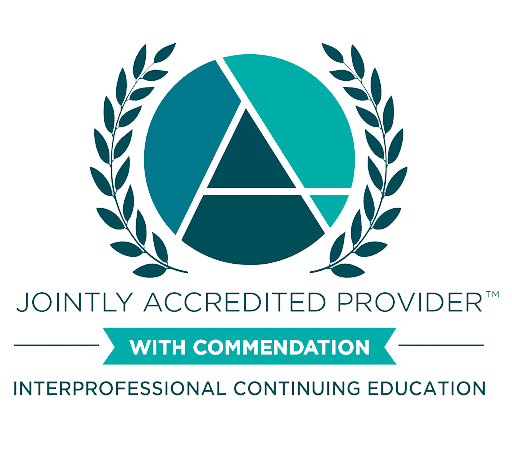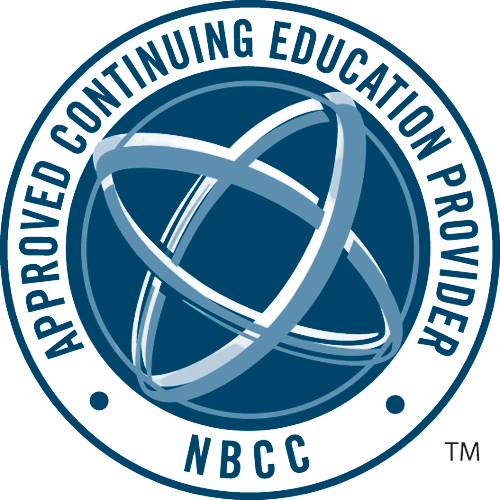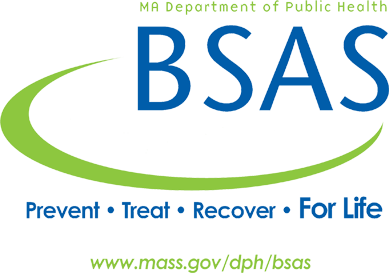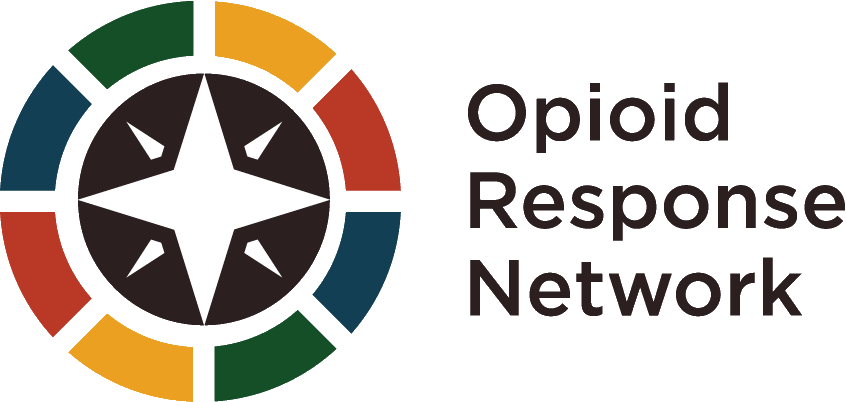Contact:
Grayken Center for Addiction TTA
info@addictiontraining.org
– Minimize
Jump to event:
Trans and Gender Diverse Folks and Substance Use Treatment: Foundations
The Greatest LGBTQ+ Health Issue of All Time: Commercial Tobacco
+ Show events
Past events
Trans and Gender Diverse Folks and Substance Use Treatment: Foundations
 Monday, 6/3/24, 12:00 PM – 1:00 PM ET
Monday, 6/3/24, 12:00 PM – 1:00 PM ET
 Virtual event via Zoom
Virtual event via Zoom
 Credits available
Credits available
 Counts towards DEA's 8-hour training requirement
Counts towards DEA's 8-hour training requirement
This one-hour course provides foundational knowledge for those working in addiction treatment settings on best practices for creating welcoming spaces in addiction care for transgender & gender diverse (TGD) individuals.
Show details
Virtual meeting
Via Zoom
Description
This one-hour course provides foundational knowledge for those working in addiction treatment settings on best practices for creating welcoming spaces in addiction care for transgender & gender diverse (TGD) individuals.
Intended audience
Physicians, advanced practice providers, nurses, social workers, recovery coaches, counselors, community health workers, and all others are welcome and encouraged to attend.
Speakers
Meghan McGrath, MSW, LICSW (they/them)Meghan McGrath is the Behavioral Health (BH) Lead for Boston Medical Center’s GenderCare Center where they provide individual therapy, conduct surgical referral letter assessments, and serve as an advocate for and provide training about gender-affirming care across the healthcare system. Prior to joining BMC, Meghan served as an integrated behavioral health provider within primary care and family medicine settings at an LGBTQIA+ mission-driven community health center in Boston, MA. While there, they also oversaw the behavioral health department’s monthly continuing education program for the 85-person BH department and managed an annual advanced training program hosting candidates for behavioral health master degrees during their final year practicums. Additionally, Meghan previously served as a faculty member for the National TransECHO program providing clinical education and support to a cohort of more than 50 participants across 20 health centers within the contiguous United States, including Puerto Rico and Hawaii, all seeking to expand their ability to and capacity for providing gender-affirming care. As a faculty field liaison at Simmons University’s School for Social Work, Meghan worked to ensure the integrity of students’ field education placements, served as a resource to agency field instructors, and helped students achieve their educational goals within the field placement. They are also co-author of a chapter on gender identity emergence in adulthood within the first case-based, comprehensive textbook to address the unique health care needs of transgender and gender-diverse adults. Meghan views training and education as a form of service to individuals but also to the field at large and has sought opportunities to support learning communities throughout their career. Meghan earned their Master of Social Work at Smith College School for Social Work.
Annie Potter, MSN, MPH, FNP-BC, CARN-AP (she/her)Annie is a clinical nurse educator for Boston Medical Center's Grayken Center for Addiction Training and Technical Assistance, an assistant professor of medicine at Boston University Chobanian & Avedisian School of Medicine, and a nurse practitioner at Boston Medical Center. Annie contributes to peer-reviewed publications, evidence-based clinical guidelines, development and delivery of continuing education programs, and other resources for clinicians supporting patients with substance use disorders. Annie is also consultant and educator for the Massachusetts HEALing Communities Study, a multi-state study funded by the National Institute on Drug Abuse. She is also the Medical Director for the Massachusetts Community Health Center ECHO and an expert faculty member of the Provider Clinical Support System Exchange (PCSS-X). Annie's other clinical interests include treatment and prevention of HIV and Hepatitis C, family planning, and care for gender-diverse individuals. Before joining Boston Medical Center, Annie practiced at a community health center in Baltimore, MD, where she established and directed the city's first walk-in HIV treatment and prevention program. She holds specialty certifications for the treatment of HIV and Hepatitis C. Annie earned both her Master of Nursing and Master of Public Health from Johns Hopkins University.
Objectives
- Recognize terminology re: affirming care, gender, identity
- Appreciate the impacts of systemic, societal, and personal traumas on the transgender & gender diverse (TGD) population.
- Understand the intersection of TGD experience and SUD
- Engage with Trans and Gender Diverse folks in affirming ways
Sponsored by
Boston Medical Center Grayken Center for Addiction TTA, Massachusetts Department of Public Health, Bureau of Substance Addiction Services (DPH/BSAS)
Funding for out of state attendees is provided by the Opioid Response Network (ORN).
Funding for this initiative was made possible (in part) by grant no. 1H79TI085588-02 from SAMHSA. The views expressed in written conference materials or publications and by speakers and moderators do not necessarily reflect the official policies of the Department of Health and Human Services; nor does mention of trade names, commercial practices, or organizations imply endorsement by the U.S. Government.
Accreditation information
REQUIREMENTS for credit
- Register for training.
- Arrive/log into the training no more than 10 minutes after designated start time for program.
- Identify yourself by typing your full name into the chat and ensuring your zoom name matches that used to register for training (or you cannot be marked on attendance).
- Be present through the end of the activity (i.e. until the designated end time of training).
- Complete evaluation within 2 weeks of program completion.
Please note this policy is strictly enforced for accreditation purposes. Participants will forfeit collection of credit and certificates of completion if more than 10 minutes of the training is missed.
Joint Accreditation Statement for CME, Nursing and Social Work
 In support of improving patient care, Boston University Chobanian & Avedisian School of Medicine is jointly accredited by the Accreditation Council for Continuing Medical Education (ACCME), the Accreditation Council for Pharmacy Education (ACPE), and the American Nurses Credentialing Center (ANCC), to provide continuing education for the healthcare team.
In support of improving patient care, Boston University Chobanian & Avedisian School of Medicine is jointly accredited by the Accreditation Council for Continuing Medical Education (ACCME), the Accreditation Council for Pharmacy Education (ACPE), and the American Nurses Credentialing Center (ANCC), to provide continuing education for the healthcare team.
CME
Boston University Chobanian & Avedisian School of Medicine designates this live activity for a maximum of 1.00 AMA PRA Category 1 Credit(s)™. Physicians should claim only the credit commensurate with the extent of their participation in the activity.
Nursing
Nursing Contact Hours: 1.00 number of contact hours of which 0.00 are eligible for pharmacology credit.
Social Work
As a Jointly Accredited Organization, Boston University Chobanian & Avedisian School of Medicine is approved to offer social work continuing education by the Association of Social Work Boards (ASWB) Approved Continuing Education (ACE) program. Organizations, not individual courses, are approved under this program. Regulatory boards are the final authority on courses accepted for continuing education credit. Social workers completing this course receive 1.00 general continuing education credits.
LMHC
 BMC Grayken Center of Addiction TTA has been approved by NBCC as an Approved Continuing Education Provider, ACEP No. 7188. Programs that do not qualify for NBCC credit are clearly identified. BMC Grayken Center of Addiction TTA is solely responsible for all aspects of the programs. For this program, 1.00 contact hours will be offered to participants who attend the training and complete the evaluation.
BMC Grayken Center of Addiction TTA has been approved by NBCC as an Approved Continuing Education Provider, ACEP No. 7188. Programs that do not qualify for NBCC credit are clearly identified. BMC Grayken Center of Addiction TTA is solely responsible for all aspects of the programs. For this program, 1.00 contact hours will be offered to participants who attend the training and complete the evaluation.
LADC/CADC & Recovery Coach
Grayken Center for Addiction TTA is approved to offer LADC/CADCs and recovery coaches who complete this course 1.00 general continuing education credits.
Disclaimer
Continuing education (CE) requirements vary by license and jurisdiction. When requesting continuing education credits, please ensure you are following the rules and regulations determined by the board regulating your license. Boston Medical Center Grayken Center for Addiction TTA does not oversee adherence to licensing requirements and regulations.
THIS CONTINUING EDUCATION PROGRAM IS INTENDED SOLELY FOR EDUCATIONAL PURPOSES FOR QUALIFIED HEALTHCARE PROFESSIONALS. IN NO EVENT SHALL BOSTON UNIVERSITY BE LIABLE FOR ANY DECISION MADE OR ACTION TAKEN IN RELIANCE ON THE INFORMATION CONTAINED IN THE PROGRAM. IN NO EVENT SHOULD THE INFORMATION CONTAINED IN THE PROGRAM BE USED AS A SUBSTITUTE FOR PROFESSIONAL CARE. NO PHYSICIAN-PATIENT RELATIONSHIP IS BEING ESTABLISHED. IN NO EVENT SHOULD INFORMATION IN THE MATERIALS REGARDING LAWS, REGULATIONS, OR LEGAL LIABILITY BE CONSIDERED LEGAL ADVICE OR USED AS A SUBSTITUTE FOR CONSULTING WITH AN ATTORNEY.
Hide details
The Greatest LGBTQ+ Health Issue of All Time: Commercial Tobacco
 Tuesday, 6/11/24, 2:00 PM – 3:00 PM ET
Tuesday, 6/11/24, 2:00 PM – 3:00 PM ET
 Virtual event via Zoom
Virtual event via Zoom
 Credits available
Credits available
This one-hour course will review current epidemiological trends related to smoking and tobacco/nicotine use disorder among gender and sexuality diverse (GSD) people. Contributing factors to higher rates of combustible cigarette and electronic cigarette consumption will be reviewed through a minority stress framework. The course will review strategies for improving cultural responsiveness for GSD populations to increase quit attempts, improve harm reduction implementation related to nicotine consumption, improve primary prevention of smoking, and improve tobacco cessation efforts. Following a 45-minute didactic there will be a 15-minute Q+A to address current questions and concerns related to smoking cessation among GSD populations.
Show details
Virtual meeting
Via Zoom
Description
This one-hour course will review current epidemiological trends related to smoking and tobacco/nicotine use disorder among gender and sexuality diverse (GSD) people. Contributing factors to higher rates of combustible cigarette and electronic cigarette consumption will be reviewed through a minority stress framework. The course will review strategies for improving cultural responsiveness for GSD populations to increase quit attempts, improve harm reduction implementation related to nicotine consumption, improve primary prevention of smoking, and improve tobacco cessation efforts. Following a 45-minute didactic there will be a 15-minute Q+A to address current questions and concerns related to smoking cessation among GSD populations.
Intended audience
The entire multidisciplinary team providing treatment for substance use disorders in an office-based setting as well as anyone in a clinical or non-clinical position that is interested in learning about harm reduction & GSD populations.
Speakers
Jamie Garfield, MD (she/her)Dr. Jamie L. Garfield (she/her) is a Professor of Thoracic Medicine and Surgery at the Temple Lung Center at the Lewis Katz School of Medicine. Dr. Garfield's research, advocacy, and clinical efforts are focused on interventional pulmonology, lung cancer, and tobacco dependence. Dr. Garfield is an LGBTQ affirming provider and a member of the LGBTQ community herself. In her clinical practice, she provides smoking cessation counseling specifically to LGBTQ people and through her research and advocacy work, she strives to improve heath disparities for LGBTQ people, especially those relating to tobacco product use, dependence, and cessation.
Brittany L. Carney, DNP, FNP-BC (she/her)Brittany (Britt) is a clinical nurse educator for Boston Medical Center's Grayken Center for Addiction Training and Technical Assistance. After starting her professional career at Boston Medical Center, she is thrilled to return to her roots supporting patients with substance use and caring for adolescent patients. She is a doctorally prepared, board-certified family nurse practitioner. Her passion is caring for youth and families, especially those with substance use disorder. Her clinical interests include adolescents/young adults, co-occurring mental health disorders, optimizing safety/overdose prevention, and improving continuity of care among DCF/DYS-involved youth. She has over a decade of experience working in addiction medicine from clinical operations to education/training. She pursued her DNP degree to continue to work to bring best practices into clinical care. Britt has published on various topics, including stigma for youth, caring for adolescents with substance use disorders and the role of addiction training for providers. She has also co-authored a book chapter on caring for adolescents with substance use. She is a member of Sigma Theta Tau International and AMERSA (The Association for Multidisciplinary Education and Research in Substance use and Addiction). She received her Doctor in Nursing Practice (DNP) and Master's in Nursing degrees from the University of Massachusetts, Graduate School of Nursing. She also has a Master's in Medical Science from Boston University Chobanian & Avedisian School of Medicine.
Objectives
- Describe the prevalence of nicotine use disorders among GSD populations.
- Identify at least 2 contributing factors to higher rates of smoking among GSD populations.
- Recall at least 3 strategies to improve cultural responsiveness for smoking cessation among GSD populations.
Sponsored by
Boston Medical Center Grayken Center for Addiction TTA, Massachusetts Department of Public Health, Bureau of Substance Addiction Services (DPH/BSAS)
Funding for out of state attendees is provided by the Opioid Response Network (ORN).
Funding for this initiative was made possible (in part) by grant no. 1H79TI085588-02 from SAMHSA. The views expressed in written conference materials or publications and by speakers and moderators do not necessarily reflect the official policies of the Department of Health and Human Services; nor does mention of trade names, commercial practices, or organizations imply endorsement by the U.S. Government.
Accreditation information
REQUIREMENTS for credit
- Register for training.
- Arrive/log into the training no more than 10 minutes after designated start time for program.
- Identify yourself by typing your full name into the chat and ensuring your zoom name matches that used to register for training (or you cannot be marked on attendance).
- Be present through the end of the activity (i.e. until the designated end time of training).
- Complete evaluation within 2 weeks of program completion.
Please note this policy is strictly enforced for accreditation purposes. Participants will forfeit collection of credit and certificates of completion if more than 10 minutes of the training is missed.
Joint Accreditation Statement for CME, Nursing and Social Work
 In support of improving patient care, Boston University Chobanian & Avedisian School of Medicine is jointly accredited by the Accreditation Council for Continuing Medical Education (ACCME), the Accreditation Council for Pharmacy Education (ACPE), and the American Nurses Credentialing Center (ANCC), to provide continuing education for the healthcare team.
In support of improving patient care, Boston University Chobanian & Avedisian School of Medicine is jointly accredited by the Accreditation Council for Continuing Medical Education (ACCME), the Accreditation Council for Pharmacy Education (ACPE), and the American Nurses Credentialing Center (ANCC), to provide continuing education for the healthcare team.
CME
Boston University Chobanian & Avedisian School of Medicine designates this live activity for a maximum of 1.00 AMA PRA Category 1 Credit(s)™. Physicians should claim only the credit commensurate with the extent of their participation in the activity.
Nursing
Nursing Contact Hours: 1.00 contact hours, of which 0.00 are eligible for pharmacology credit.
Social Work
As a Jointly Accredited Organization, Boston University Chobanian & Avedisian School of Medicine is approved to offer social work continuing education by the Association of Social Work Boards (ASWB) Approved Continuing Education (ACE) program. Organizations, not individual courses, are approved under this program. Regulatory boards are the final authority on courses accepted for continuing education credit. Social workers completing this course receive 1.00 general continuing education credits.
LMHC
 BMC Grayken Center of Addiction TTA has been approved by NBCC as an Approved Continuing Education Provider, ACEP No. 7188. Programs that do not qualify for NBCC credit are clearly identified. BMC Grayken Center of Addiction TTA is solely responsible for all aspects of the programs. For this program, 1.00 contact hours will be offered to participants who attend the training and complete the evaluation.
BMC Grayken Center of Addiction TTA has been approved by NBCC as an Approved Continuing Education Provider, ACEP No. 7188. Programs that do not qualify for NBCC credit are clearly identified. BMC Grayken Center of Addiction TTA is solely responsible for all aspects of the programs. For this program, 1.00 contact hours will be offered to participants who attend the training and complete the evaluation.
LADC/CADC & Recovery Coach
Grayken Center for Addiction TTA is approved to offer LADC/CADCs and recovery coaches who complete this course 1.00 general continuing education credits.
Disclaimer
Continuing education (CE) requirements vary by license and jurisdiction. When requesting continuing education credits, please ensure you are following the rules and regulations determined by the board regulating your license. Boston Medical Center Grayken Center for Addiction TTA does not oversee adherence to licensing requirements and regulations.
THIS CONTINUING EDUCATION PROGRAM IS INTENDED SOLELY FOR EDUCATIONAL PURPOSES FOR QUALIFIED HEALTHCARE PROFESSIONALS. IN NO EVENT SHALL BOSTON UNIVERSITY BE LIABLE FOR ANY DECISION MADE OR ACTION TAKEN IN RELIANCE ON THE INFORMATION CONTAINED IN THE PROGRAM. IN NO EVENT SHOULD THE INFORMATION CONTAINED IN THE PROGRAM BE USED AS A SUBSTITUTE FOR PROFESSIONAL CARE. NO PHYSICIAN-PATIENT RELATIONSHIP IS BEING ESTABLISHED. IN NO EVENT SHOULD INFORMATION IN THE MATERIALS REGARDING LAWS, REGULATIONS, OR LEGAL LIABILITY BE CONSIDERED LEGAL ADVICE OR USED AS A SUBSTITUTE FOR CONSULTING WITH AN ATTORNEY.
Hide details
Rethinking Drinking: When the Bar's the Place to Be
 Friday, 6/21/24, 12:00 PM – 1:00 PM ET
Friday, 6/21/24, 12:00 PM – 1:00 PM ET
 Virtual event via Zoom
Virtual event via Zoom
 Credits available
Credits available
This one-hour course will review current epidemiological trends related to alcohol consumption and alcohol use disorder among gender and sexuality diverse (GSD) people. Contributing factors to higher rates of alcohol use disorder (AUD) among GSD populations will be reviewed through a minority stress framework for participants. The course will also review strategies for improving cultural responsiveness in traditional alcohol treatment programs for GSD populations. Following a 45-minute didactic there will be a 15-minute Q+A period to address current issues and concerns related to implementation of evidence-based practice strategies for improving care and treatment of GSD populations with AUD.
Show details
Virtual meeting
Via Zoom
Description
This one-hour course will review current epidemiological trends related to alcohol consumption and alcohol use disorder among gender and sexuality diverse (GSD) people. Contributing factors to higher rates of alcohol use disorder (AUD) among GSD populations will be reviewed through a minority stress framework for participants. The course will also review strategies for improving cultural responsiveness in traditional alcohol treatment programs for GSD populations. Following a 45-minute didactic there will be a 15-minute Q+A period to address current issues and concerns related to implementation of evidence-based practice strategies for improving care and treatment of GSD populations with AUD.
Intended audience
The entire multidisciplinary team providing treatment for substance use disorders in an office-based setting as well as anyone in a clinical or non-clinical position that is interested in learning about harm reduction & GSD populations.
Speakers
Justin Alves, MSN, FNP-BC, ACRN, CARN, CNE (he/him)Justin is a clinical nurse educator with Boston Medical Center's Grayken Center for Addiction Training and Technical Assistance, where he contributes to peer-reviewed publications, evidence-based clinical guidelines, development and delivery of continuing education programs, and other resources for providers supporting patients with substance use disorders. Justin is also a nurse practitioner at Boston Medical Center and the nursing director of two housing first programs operated by the Justice Resource Institute, Inc. He has expertise in infectious diseases and their co-occurrence with substance use disorders, community outreach, and harm reduction. Justin's work in HIV/AIDS includes being president of the Boston Chapter of the Association of Nurses in AIDS Care, consulting for the New England AIDS Education Training Center, and other positions. He currently sits on the stimulant work group for the Opioid Response Network (ORN), the advisory board of the New England Addiction Technology Transfer Center, and the item writing committee for the Addictions Nursing Certification Board (ANCB). Justin received his Bachelor of Science in Nursing (BSN) from Northeastern University in 2013, his Master of Science in Nursing (MSN) from the University of Massachusetts-Dartmouth in 2020, and his Post-Master's Family Nurse Practitioner certificate from the University of Massachusetts-Boston in 2023. He also holds certification as a Certified Addiction Registered Nurse (CARN) through the Addictions Nursing Certification Board (ANCB), certification as an AIDS Certified Registered Nurse (ACRN) through the HIV/AIDS Nursing Certification Board (HANCB), and is a certified nurse educator (CNE) through the National League of Nursing.
Objectives
- Describe the prevalence of alcohol use disorders among GSD populations.
- Identify at least 2 contributing factors to higher rates of alcohol consumption among GSD populations.
- Recall at least 3 strategies to improve cultural responsiveness to the treatment of AUD among GSD populations.
Sponsored by
Boston Medical Center Grayken Center for Addiction TTA, Massachusetts Department of Public Health, Bureau of Substance Addiction Services (DPH/BSAS)
Funding for out of state attendees is provided by the Opioid Response Network (ORN).
Funding for this initiative was made possible (in part) by grant no. 1H79TI085588-02 from SAMHSA. The views expressed in written conference materials or publications and by speakers and moderators do not necessarily reflect the official policies of the Department of Health and Human Services; nor does mention of trade names, commercial practices, or organizations imply endorsement by the U.S. Government.
Accreditation information
REQUIREMENTS for credit
- Register for training.
- Arrive/log into the training no more than 10 minutes after designated start time for program.
- Identify yourself by typing your full name into the chat and ensuring your zoom name matches that used to register for training (or you cannot be marked on attendance).
- Be present through the end of the activity (i.e. until the designated end time of training).
- Complete evaluation within 2 weeks of program completion.
Please note this policy is strictly enforced for accreditation purposes. Participants will forfeit collection of credit and certificates of completion if more than 10 minutes of the training is missed.
Joint Accreditation Statement for CME, Nursing and Social Work
 In support of improving patient care, Boston University Chobanian & Avedisian School of Medicine is jointly accredited by the Accreditation Council for Continuing Medical Education (ACCME), the Accreditation Council for Pharmacy Education (ACPE), and the American Nurses Credentialing Center (ANCC), to provide continuing education for the healthcare team.
In support of improving patient care, Boston University Chobanian & Avedisian School of Medicine is jointly accredited by the Accreditation Council for Continuing Medical Education (ACCME), the Accreditation Council for Pharmacy Education (ACPE), and the American Nurses Credentialing Center (ANCC), to provide continuing education for the healthcare team.
CME
Boston University Chobanian & Avedisian School of Medicine designates this live activity for a maximum of 1.00 AMA PRA Category 1 Credit(s)™. Physicians should claim only the credit commensurate with the extent of their participation in the activity.
Nursing
Nursing Contact Hours: 1.00 contact hours, of which 0.00 are eligible for pharmacology credit.
Social Work
As a Jointly Accredited Organization, Boston University Chobanian & Avedisian School of Medicine is approved to offer social work continuing education by the Association of Social Work Boards (ASWB) Approved Continuing Education (ACE) program. Organizations, not individual courses, are approved under this program. Regulatory boards are the final authority on courses accepted for continuing education credit. Social workers completing this course receive 1.00 general continuing education credits.
LMHC
 BMC Grayken Center of Addiction TTA has been approved by NBCC as an Approved Continuing Education Provider, ACEP No. 7188. Programs that do not qualify for NBCC credit are clearly identified. BMC Grayken Center of Addiction TTA is solely responsible for all aspects of the programs. For this program, 1.00 contact hours will be offered to participants who attend the training and complete the evaluation.
BMC Grayken Center of Addiction TTA has been approved by NBCC as an Approved Continuing Education Provider, ACEP No. 7188. Programs that do not qualify for NBCC credit are clearly identified. BMC Grayken Center of Addiction TTA is solely responsible for all aspects of the programs. For this program, 1.00 contact hours will be offered to participants who attend the training and complete the evaluation.
LADC/CADC & Recovery Coach
Grayken Center for Addiction TTA is approved to offer LADC/CADCs and recovery coaches who complete this course 1.00 general continuing education credits.
Disclaimer
Continuing education (CE) requirements vary by license and jurisdiction. When requesting continuing education credits, please ensure you are following the rules and regulations determined by the board regulating your license. Boston Medical Center Grayken Center for Addiction TTA does not oversee adherence to licensing requirements and regulations.
THIS CONTINUING EDUCATION PROGRAM IS INTENDED SOLELY FOR EDUCATIONAL PURPOSES FOR QUALIFIED HEALTHCARE PROFESSIONALS. IN NO EVENT SHALL BOSTON UNIVERSITY BE LIABLE FOR ANY DECISION MADE OR ACTION TAKEN IN RELIANCE ON THE INFORMATION CONTAINED IN THE PROGRAM. IN NO EVENT SHOULD THE INFORMATION CONTAINED IN THE PROGRAM BE USED AS A SUBSTITUTE FOR PROFESSIONAL CARE. NO PHYSICIAN-PATIENT RELATIONSHIP IS BEING ESTABLISHED. IN NO EVENT SHOULD INFORMATION IN THE MATERIALS REGARDING LAWS, REGULATIONS, OR LEGAL LIABILITY BE CONSIDERED LEGAL ADVICE OR USED AS A SUBSTITUTE FOR CONSULTING WITH AN ATTORNEY.
Hide details
Preparing for the Pride ParTy: Addressing Club Drugs
 Tuesday, 6/25/24, 2:00 PM – 3:00 PM ET
Tuesday, 6/25/24, 2:00 PM – 3:00 PM ET
 Virtual event via Zoom
Virtual event via Zoom
 Credits available
Credits available
This one-hour course will review current epidemiological trends related to club or party drug consumption for gender and sexuality diverse people. There will be a brief overview of the types and classes of drugs consumed in club and party settings by GSD populations. Signs of intoxication, dependence, withdrawal, and crash will be reviewed as well as harm reduction strategies for patients using club or party drugs from GSD populations. Screening and treatment models will be reviewed with special considerations for culturally responsive strategies for GSD populations.
Show details
Virtual meeting
Via Zoom
Description
This one-hour course will review current epidemiological trends related to club or party drug consumption for gender and sexuality diverse people. There will be a brief overview of the types and classes of drugs consumed in club and party settings by GSD populations. Signs of intoxication, dependence, withdrawal, and crash will be reviewed as well as harm reduction strategies for patients using club or party drugs from GSD populations. Screening and treatment models will be reviewed with special considerations for culturally responsive strategies for GSD populations.
Intended audience
The entire multidisciplinary team providing treatment for substance use disorders in an office-based setting as well as anyone in a clinical or non-clinical position that is interested in learning about harm reduction & GSD populations.
Speakers
Justin Alves, MSN, FNP-BC, ACRN, CARN, CNE (he/him)Justin is a clinical nurse educator with Boston Medical Center's Grayken Center for Addiction Training and Technical Assistance, where he contributes to peer-reviewed publications, evidence-based clinical guidelines, development and delivery of continuing education programs, and other resources for providers supporting patients with substance use disorders. Justin is also a nurse practitioner at Boston Medical Center and the nursing director of two housing first programs operated by the Justice Resource Institute, Inc. He has expertise in infectious diseases and their co-occurrence with substance use disorders, community outreach, and harm reduction. Justin's work in HIV/AIDS includes being president of the Boston Chapter of the Association of Nurses in AIDS Care, consulting for the New England AIDS Education Training Center, and other positions. He currently sits on the stimulant work group for the Opioid Response Network (ORN), the advisory board of the New England Addiction Technology Transfer Center, and the item writing committee for the Addictions Nursing Certification Board (ANCB). Justin received his Bachelor of Science in Nursing (BSN) from Northeastern University in 2013, his Master of Science in Nursing (MSN) from the University of Massachusetts-Dartmouth in 2020, and his Post-Master's Family Nurse Practitioner certificate from the University of Massachusetts-Boston in 2023. He also holds certification as a Certified Addiction Registered Nurse (CARN) through the Addictions Nursing Certification Board (ANCB), certification as an AIDS Certified Registered Nurse (ACRN) through the HIV/AIDS Nursing Certification Board (HANCB), and is a certified nurse educator (CNE) through the National League of Nursing.
Objectives
- Describe the prevalence of club drug use among GSD populations.
- Identify at least 3 harm reduction strategies related to the use of club/party drugs.
- Name at least 2 strategies for the treatment of patients wishing to refrain from club/party drug use.
Sponsored by
Boston Medical Center Grayken Center for Addiction TTA, Massachusetts Department of Public Health, Bureau of Substance Addiction Services (DPH/BSAS)
Funding for out of state attendees is provided by the Opioid Response Network (ORN).
Funding for this initiative was made possible (in part) by grant no. 1H79TI085588-02 from SAMHSA. The views expressed in written conference materials or publications and by speakers and moderators do not necessarily reflect the official policies of the Department of Health and Human Services; nor does mention of trade names, commercial practices, or organizations imply endorsement by the U.S. Government.
Accreditation information
REQUIREMENTS for credit
- Register for training.
- Arrive/log into the training no more than 10 minutes after designated start time for program.
- Identify yourself by typing your full name into the chat and ensuring your zoom name matches that used to register for training (or you cannot be marked on attendance).
- Be present through the end of the activity (i.e. until the designated end time of training).
- Complete evaluation within 2 weeks of program completion.
Please note this policy is strictly enforced for accreditation purposes. Participants will forfeit collection of credit and certificates of completion if more than 10 minutes of the training is missed.
Joint Accreditation Statement for CME, Nursing and Social Work
 In support of improving patient care, Boston University Chobanian & Avedisian School of Medicine is jointly accredited by the Accreditation Council for Continuing Medical Education (ACCME), the Accreditation Council for Pharmacy Education (ACPE), and the American Nurses Credentialing Center (ANCC), to provide continuing education for the healthcare team.
In support of improving patient care, Boston University Chobanian & Avedisian School of Medicine is jointly accredited by the Accreditation Council for Continuing Medical Education (ACCME), the Accreditation Council for Pharmacy Education (ACPE), and the American Nurses Credentialing Center (ANCC), to provide continuing education for the healthcare team.
CME
Boston University Chobanian & Avedisian School of Medicine designates this live activity for a maximum of 1.00 AMA PRA Category 1 Credit(s)™. Physicians should claim only the credit commensurate with the extent of their participation in the activity.
Nursing
Nursing Contact Hours: 1.00 contact hours, of which 0.00 are eligible for pharmacology credit.
Social Work
As a Jointly Accredited Organization, Boston University Chobanian & Avedisian School of Medicine is approved to offer social work continuing education by the Association of Social Work Boards (ASWB) Approved Continuing Education (ACE) program. Organizations, not individual courses, are approved under this program. Regulatory boards are the final authority on courses accepted for continuing education credit. Social workers completing this course receive 1.00 general continuing education credits.
LMHC
 BMC Grayken Center of Addiction TTA has been approved by NBCC as an Approved Continuing Education Provider, ACEP No. 7188. Programs that do not qualify for NBCC credit are clearly identified. BMC Grayken Center of Addiction TTA is solely responsible for all aspects of the programs. For this program, 1.00 contact hours will be offered to participants who attend the training and complete the evaluation.
BMC Grayken Center of Addiction TTA has been approved by NBCC as an Approved Continuing Education Provider, ACEP No. 7188. Programs that do not qualify for NBCC credit are clearly identified. BMC Grayken Center of Addiction TTA is solely responsible for all aspects of the programs. For this program, 1.00 contact hours will be offered to participants who attend the training and complete the evaluation.
LADC/CADC & Recovery Coach
Grayken Center for Addiction TTA is approved to offer LADC/CADCs and recovery coaches who complete this course 1.00 general continuing education credits.
Disclaimer
Continuing education (CE) requirements vary by license and jurisdiction. When requesting continuing education credits, please ensure you are following the rules and regulations determined by the board regulating your license. Boston Medical Center Grayken Center for Addiction TTA does not oversee adherence to licensing requirements and regulations.
THIS CONTINUING EDUCATION PROGRAM IS INTENDED SOLELY FOR EDUCATIONAL PURPOSES FOR QUALIFIED HEALTHCARE PROFESSIONALS. IN NO EVENT SHALL BOSTON UNIVERSITY BE LIABLE FOR ANY DECISION MADE OR ACTION TAKEN IN RELIANCE ON THE INFORMATION CONTAINED IN THE PROGRAM. IN NO EVENT SHOULD THE INFORMATION CONTAINED IN THE PROGRAM BE USED AS A SUBSTITUTE FOR PROFESSIONAL CARE. NO PHYSICIAN-PATIENT RELATIONSHIP IS BEING ESTABLISHED. IN NO EVENT SHOULD INFORMATION IN THE MATERIALS REGARDING LAWS, REGULATIONS, OR LEGAL LIABILITY BE CONSIDERED LEGAL ADVICE OR USED AS A SUBSTITUTE FOR CONSULTING WITH AN ATTORNEY.
Hide details





